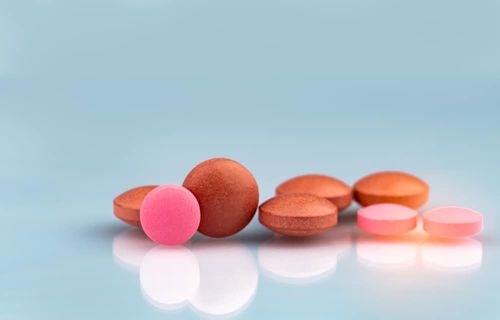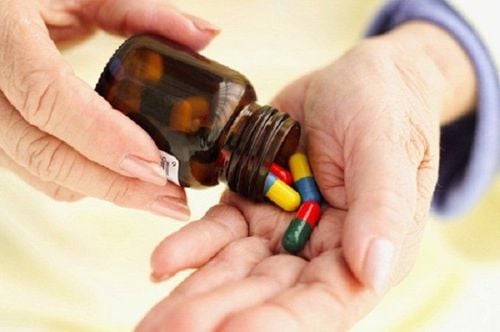This is an automatically translated article.
Angiomax is a drug used intravenously to treat diseases caused by blockage of blood vessels. To learn more about the uses and notes when using the drug, please read through the article below.
1. What is Angiomax?
The main ingredient of Angiomax is Bivalirudin, which belongs to the group of anticoagulants.
Angiomax is an anticoagulant (thrombin inhibitor) that helps prevent the formation of blood clots.
Thrombin plays an important role in thrombus formation, the action of thrombin is to cleave fibrinogen into fibrin monomers and activate clotting factor XIII to factor XIIIa, allowing fibrin to develop a framework covalent cross-linking to stabilize thrombosis. Thrombin also activates factors V and VIII, promotes the production of more thrombin, activates the activity of platelets. Bivalirudin is an inhibitor of these effects of thrombin.
2. Uses of the drug Angiomax
Angiomax is used for indications in the following cases:
As an anticoagulant in patients undergoing percutaneous vascular intervention (PCI); Angiomax is used to prevent blood clots in patients with unstable angina/MI without ST-segment elevation for whom urgent or early intervention is planned. Do not use Angiomax in the following cases:
Patients with hypersensitivity to the active substance or any of the excipients of the drug. Experiencing major bleeding or an increased risk of bleeding due to a reversible or irreversible coagulopathy. Severe uncontrolled hypertension. Subacute infective endocarditis. Severe renal failure and patients dependent on dialysis.
3. How to take Angiomax?
Angiomax is prepared in the form of coagulant powder for infusion and will be infused into your vein by medical staff during vascular surgery. You may also still need to take Angiomax for a few hours after surgery to prevent blood clots from forming, research has shown early blood clot formation in people who stop taking the medication as soon as surgery is over. art.
Do not take this medicine by another route, eg intramuscularly.
4. Angiomax drug side effects
When taking Angiomax you may experience some unwanted effects, including:
Hypersensitivity reactions such as urticaria; severe abdominal pain; shortness of breath; swelling of the face, swelling of the lips, swelling of the tongue and throat. This can happen, so the doctors will prepare the right means to give you first aid as soon as there are abnormal signs. After taking the medicine, if you experience the following side effects, you should immediately notify your doctor or caregiver: feeling like you might pass out; easy bruising or bleeding; bloody or coffee-colored stools; coughing up blood or vomit that looks like coffee grounds; sudden onset of numbness or weakness, vision or speech problems; red, pink or brown urine; swelling or redness in your arms or legs; heavy bleeding from a wound, needle, or any bleeding that doesn't stop.
5. Notes when using Angiomax medicine
Inform your doctor about your history of allergies and medical conditions. Note that you should not take Angiomax if you are bleeding heavily due to surgery, trauma or other medical trauma.
Angiomax can make you bleed more easily, even with minor injuries. Therefore, it is important to avoid activities that may increase the risk of bleeding or injury. Take extra care to avoid bleeding when brushing. If you experience bleeding that doesn't stop or unusual bruising, tell your doctor right away.
Because the use of this medicine has not been studied in pregnant and lactating women. So you need to let your doctor know if you are pregnant or breast-feeding.
Possible Drug Interactions: You need to tell your doctor about all other medicines you use, especially other medicines to treat or prevent blood clots.
Above is some information about Angiomax medicine, this is a drug prescribed by a doctor. You absolutely should not self-medicate without prescription.
Please dial HOTLINE for more information or register for an appointment HERE. Download MyVinmec app to make appointments faster and to manage your bookings easily.
Reference sources: holevn.org, drugs.com













